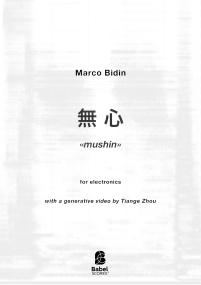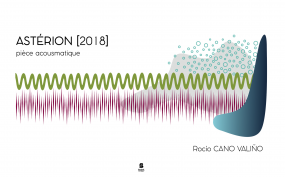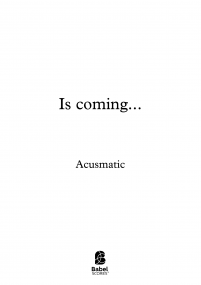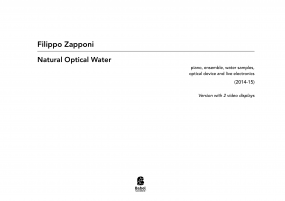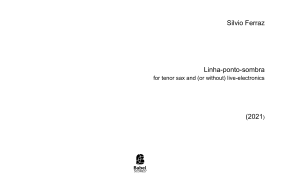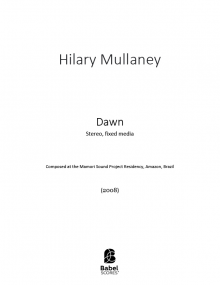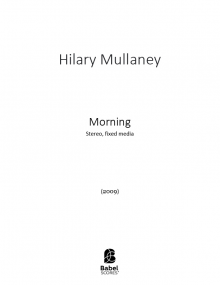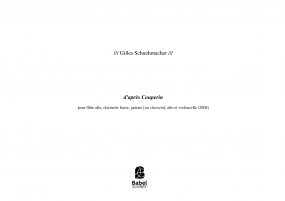Supersonic
for 8 channels' electronic device
11,00 €
Versión digital (+0,00 €) para descarga
Versión impresa (+14,80 € impresión y envío). Colissimo7-14 days aprox.
Al comprar una partitura, usted puede contactar al compositor aquí mismo!
Especificaciones
Region
Europe
Estimated Duration
11 - 15min
Date
2017
ISMN : 979-0-2325-3880-8
Descripción
Add to list
- Login to create your own lists
First version premiered on 2017.
My work Supersonic (2017) for 8 channel electronic device was commissioned by the Paris GRM (Groupe de Recherches Musicales) directed by composer Daniel Teruggi.
The core idea of Supersonic comes from souvenirs of science fiction mainstream movies that I watched when I was a kid. It can be seen as something very naif but I remember the Millennium Falcon spaceship trying to reach the speed of light in the original Star Wars creating an envelope of light segments that suddenly densifies exploding into a flash. This is like an Archetype of light speed travel which remains anchored in my mind from a very early age.
Starting from this imaginary universe, the core idea or starting point of this work is thus very simple: to create an acceleration process of perceptible tonal colours (usually triads), expressed in different registers and projected at increasing speed until they turn subliminal or non identifiable.
In fact, at the beginning the spectator advances slowly through space. This slowness allows colours or color combinatory to become easily perceptible or identifiable as tonal derivatives. Each of these objects or fluorescent strokes are constituted by noises and granulations but are also associated to clearly perceptible frequencies. As the piece develops, the motion is progressively accelerated until it reaches a considerable speed or density which causes these colours or chords to become undifferentiated as they mix and turn subliminal or, one could also say, they turn into a continuous and complex color. Colours shift and space torsion modulates, tonal references are lost.
Fluorescent strokes are assembled from studio recordings of multiple objects or even instruments. There is hardly any synthetic presence except for sinusoids waves. The use of granulation or sound perforation are the means to place objects in space more effectively. At the same time it is this mixture of different sounds which, together with other variables, provides the object with not just its identity but also its volume and depth. In a general way, noise components in each object are surrounded by sinusoids or other noises with clearly perceptible frequencies. These frequencies are subjected to oscillations so as to generate the impression of inner life and motion in space. These oscillations sometimes follow a Doppler effect model but they also follow arbitrary expressive patterns. I understand that the strength of this idea (if any) lies in its simplicity, in its easily transmittable synthetic character and in its potentiality to be transposed into sound. And electro-acoustics seemed to be the most suitable means to achieve it. Electronics allows a precise control of each gesture or object in space as well as the detailed control or micro-composition of each articulation, enjambement, microscopic duration, dynamic curve as well as the mastering of intensity peaks and object overlapping at the moments of higher speed.
Without a micro-writing of the electronics it would be impossible to attain precision in the hyper-fast linking of colours and objects.
Instrumentation
Electronics
Recording
electronic device reduced stereo version
Score Details
Format - A4 / US Letter
Pages - 12
Pages - 12





